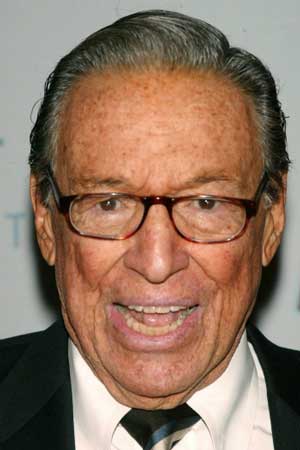On my first of what turned out to be many, many summer TV critics' tours to Los Angeles, CBS flew out Mike Wallace, 60 Minutes' guru of "gotcha" journalism, to do meet-and-greets. This was 1973, when the critic corps was still relatively small, so instead of mass press conferences there were small coffee klatch sessions that were almost cozy. Nobody asked hard questions. Everybody just chatted, and the interviewee -- whether it was Wallace or William "Cannon" Conrad or Sally Field -- was mainly expected to tell good anecdotes.
Wallace was extremely convivial, telling "war stories" about cheats and liars he's faced down and expounding on how he and his producers convinced these crooks to appear on camera. We all laughed a lot.

As the session was ending, I couldn't resist approaching the most feared and famous journalist in America. I had been on the TV beat for The Orlando Sentinel for less than six months. I had previously been a staff writer for the paper's Sunday magazine, Florida, and one of the last pieces I had written for the mag was a long feature about the "leper colony" in Carville, Louisiana. I couldn't wait to tell Wallace that Carville was a great story just waiting for him or Morley Safer.
"Mr. Wallace, Mr. Wallace," I called to him. He turned toward me. "I just wanted to tell you I have a great story idea for you. It's about -- "
He cut me off with one of those annoyed "Oh, please" looks well known to 60 Minutes viewers. "Sure, kid," he said. "Everybody does."
As he turned away, I was so stunned that my deeply ingrained Southern deference just disappeared. "Well, fuck you," I blurted.
He turned sharply and looked at me -- really looked at me for the first time. I gulped. "What's the story?" he asked.
I told him, as succinctly as I could, about Carville. He nodded as I explained, and then he said, "That is a good story, but it's not a 60 Minutes story." He went on to explain about conflict, finding the drama in a piece.
He thanked me for the suggestion, wished me luck with my writing, shook my hand.
Years later, when I was working for the Minneapolis Star Tribune, I lined up a phone interview with Wallace to talk about some history special he was narrating. The publicist had gotten me his home phone number. We talked about the special, about 60 Minutes, even his struggle with depression. He was as candid as he was genial. As the interview was wrapping up, I mentioned the encounter described above.
Not surprisingly, given how many people he'd met in his professional life, he did not recall my outburst. But his behavior, he said, sounded like him, and he apologized.
No, I said, "I'm the one who should apologize for what I said. It was rude."
"Trust me when I tell you, Noel," he said. "You were not the first person who ever said that to me."